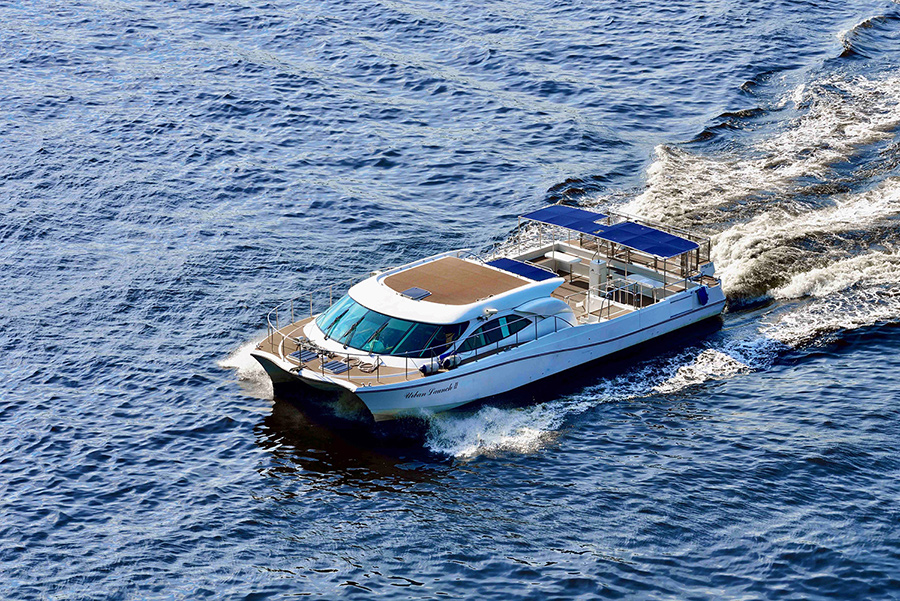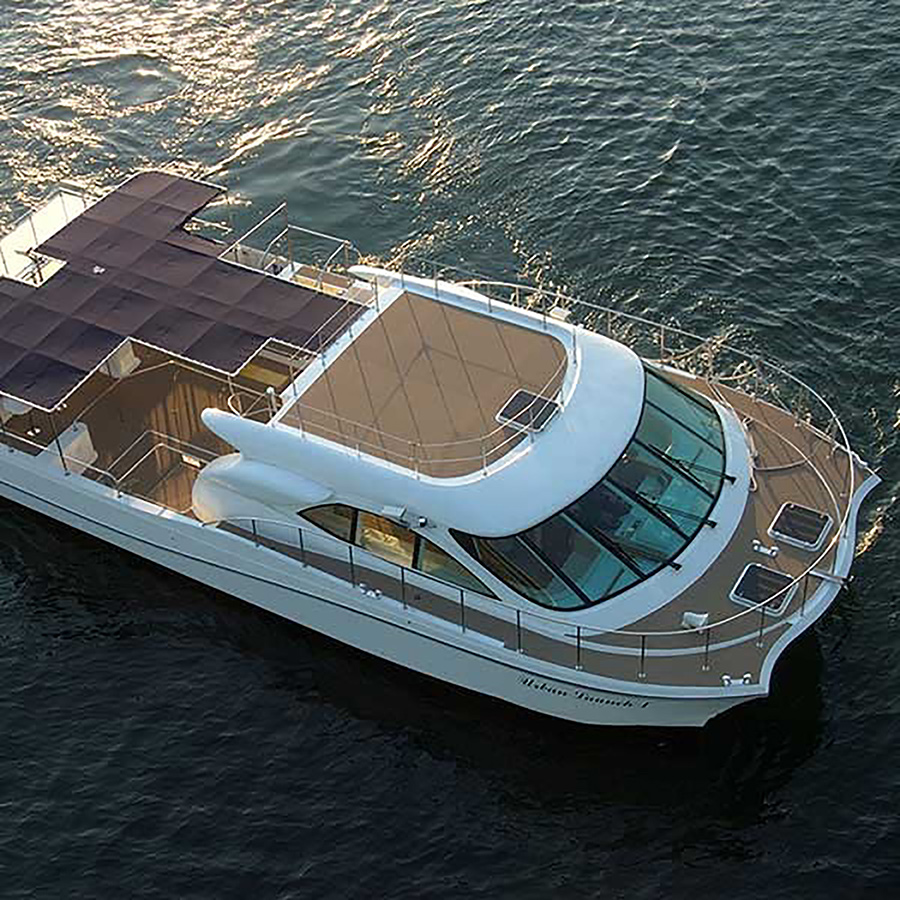Proof of Concept Test Using Actual Vessels Conducted in Sea off Toyosu, Tokyo
- Part of the "ROBOSHIP Joint Value Creation Project" being pursued through an inter-business collaboration of 23 companies and a ship classification society, including firms outside the shipbuilding and marine transport field
- Demonstration of remote controlled vessel and a vessel equipped with collision avoidance algorithm aim to promote the development and widespread adoption of a navigational support system
Mitsubishi Shipbuilding Co., Ltd., a part of Mitsubishi Heavy Industries (MHI) Group, is participating in an inter-business project to explore the potential of the "ROBOSHIP" as the marine vessel of the future. A proof of concept (PoC) test using two actual surface vessels was jointly conducted on November 11, 2020. This PoC test, to be held in the sea off Toyosu in Tokyo using a passenger vessel owned by Tokyo Cruise Ship Co., Ltd., intended to demonstrate the cutting-edge technologies and ideas of the participating companies, with the aim of supporting the development and widespread adoption of a navigational support system for coastal vessels.

The PoC testing is part of the "ROBOSHIP Joint Value Creation Project" led by e5 Lab Inc., a firm jointly established in 2019 by four companies representing shipping companies and a trading company to develop EV (electric vehicle) ships and digitization technologies. The project is a collaborative effort between e5 Lab, 22 companies and a ship classification society, including firms outside the shipbuilding and marine transport field, as a cooperative platform to create value and turn challenges into opportunities by addressing issues facing the ocean shipping industry. Specifically, a two-day event to be held on November 11-12, entitled "ROBOSHIP Joint Value Creation Project PoC in Tokyo 2020" is being conducted on the theme of "Ideas for future ships envisioned by e5 Lab, 22 partner companies, and a ship classification society."
Mitsubishi Shipbuilding, with assistance from related sections within MHI Group, has provided maritime-related engineering services, support for marine vessel remote control/autonomous navigation, and system integration for the vessel propulsion units. As part of the test, a navigation support system called SUPERBRIDGE-X, with functions including route planning, course control, vessel speed control, and collision avoidance, has been installed in "Urban Launch," a passenger vessel operated by Tokyo Cruise Ship Co., Ltd. to conduct cruises in Tokyo Bay and other areas. In addition, a remotely operated unmanned surface vessel developed by MHI has also been made available, and the two vessels used to demonstrate collision avoidance.

In its "MARINE FUTURE STREAM" growth strategy, Mitsubishi Shipbuilding has set goals for the decarbonization of the maritime economy through renewable energy and the carbon recycle, and effective utilization of the marine space with digitalization and electrification, aiming to generate new ideas through marine-related innovation, and making them a reality. Meanwhile, e5 Lab is a solution provider working to solve issues in the maritime industry through development of EV ships and digitization, in order to promote safe navigation for vessels, a better work environment for crews, and conservation of the global environment. While sharing concepts for activities in a full-fledged effort to find solutions to the social challenges facing the marine transport and maritime industry, Mitsubishi Shipbuilding will pursue cooperation through the joint value creation project.
Going forward, Mitsubishi Shipbuilding will leverage the marine-related technologies accumulated by wide range of technologies of MHI Group, and by providing shipbuilding engineering services as well as system integration for EV ship powertrains and digitalization to improve the work environment, will find solutions to the various challenges facing customers and society. In cooperation with e5 Lab, Mitsubishi Shipbuilding aims to be a solution provider working to resolve issues in the maritime industry.